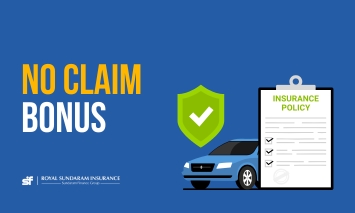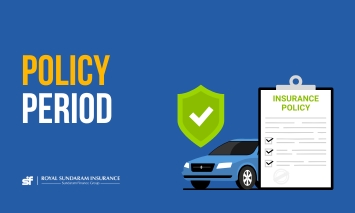What Do You Need to Know About Risk Coverage Policy?
Mar 31, 2025 • 15 Min Read
Insurance, a key component of risk coverage policies, offers reassuring security for you and your loved ones in the face of life's uncertainties. This ensures a financial back-up, reducing stress during a difficult time. In this article, we'll explore the essentials of risk cover policies, including how they work, the types available, and how to choose the right one for your needs, providing you with a sense of security and protection.
What is a Risk Coverage Policy?
Before we go into the details, it’s important to understand what a risk cover policy is. Essentially, an insurance policy is a contract between you and the insurer. You agree to pay a premium, and in return, the insurance company provides risk coverage for specific incidents such as accidents, illnesses, natural disasters, or theft. These risks can relate to your personal life, valuable assets, property, or even your business.
How Does a Risk Cover Policy Work?
In simple terms, when you purchase an insurance policy with risk cover, you’re securing a financial safety net. If you, unfortunately, pass away during the policy term, the insurance company can pay a lump sum amount to your beneficiaries. If you’re involved in an accident and become disabled, the policy will compensate you according to the agreed terms.
An insurance risk cover is not just limited to life insurance alone. You can insure your car, bike, home, business, or even your marine trades. Anything that carries a risk can be covered with the right insurance policy, giving you the facility to modify your coverage to your specific needs and circumstances.
Types of Risk Cover Policies
A comprehensive solution all risk cover isn't a one-size-fits-all solution. Different types of policies are tailored to cover specific risks related to personal life, business, or assets, ensuring that you cover all potential risks involved.
- General Insurance: This category covers a wide range of insurance types, from protecting your car and home to safeguarding your health and even your pets. It's about ensuring that you and the things important to you are financially protected in case of unexpected events. Whether it's an accident, a medical emergency, or damage to your property, the insurance company will provide financial assistance to help you recover.
- Life Insurance: This category provides coverage for personal risks such as disability, critical illness, retrenchment (job loss), and, of course, death. In such cases, the nominee per the agreement gets the insured amount in lump sum.
How to Choose the Right Risk Coverage Policy
Selecting the right insurance policy can feel overwhelming, but breaking it down into a few key considerations can make the process much easier. Here’s what to keep in mind:
For Life Insurance:
- Assess Your Annual Income: Start by analysing your annual income and the policy term. The sum assured, which is the amount the insurance company promises to pay your beneficiaries in the event of your death, should ideally be 10 times your current income to provide adequate financial support to your family.
- Calculate Inflation: Remember that inflation can erode the value of money over time. What seems like a large sum today might not be sufficient in the future. Consider this when deciding on the sum assured.
- Balance the Premium: Higher coverage means higher premiums. Ensure that the premium is affordable over the long term so you don’t discontinue the policy due to financial strain.
- Consider Debts and Liabilities: If you have outstanding loans, your family might have to shoulder these debts in your absence. Make sure your sum assured is enough to cover these obligations.
- Evaluate Your Assets and Investments: If you already have substantial savings or investments, you might not need a high sum assured. Conversely, if you lack sufficient financial backup, opting for higher coverage might be wise.
- Account for Future Obligations: Think about future expenses like your child’s education or marriage. Your policy should provide enough coverage to meet these obligations in addition to everyday expenses.
- Mind the Policy Tenure: The policy term should align with your financial goals and life stage. For instance, if you’re nearing retirement, it might not make sense to choose a policy with a long tenure.
For General Insurance:
When it comes to insuring important belongings or even yourself, the same principles apply. You need to consider the value of what you're insuring, whether it's a car, a bike, your health, or even your home. Think about how its value might change over time and how its loss or damage would impact your life or finances.
For example, if you’re insuring a car worth ₹5 lakhs, consider both its current value and its importance to you. If you rely on your car for your daily commute or work, you might want a slightly higher sum assured value to ensure you can replace it without financial strain if it's damaged or stolen.
Benefits of Risk Cover Policies
- The right insurance policy provides a safety net during unexpected events like fire damage or sea consignment loss.
- Life insurance offers coverage for critical illnesses, disabilities, and job loss.
- In the event of your death, your family receives the sum assured, providing financial support.
Conclusion
Risk cover policies, commonly known as insurance policies, are essential for safeguarding your financial future. Whether it’s protecting your family, home, or business, choosing the right risk coverage can provide peace of mind. Take the time to evaluate your needs and select a policy that offers the protection you need from a reputable insurer in India.
If you're looking for a reliable and comprehensive insurance solution, consider exploring the offerings from Royal Sundaram. With a wide range of policies tailored to your specific needs, Royal Sundaram can help you secure your financial future and protect what matters most.
Take the time to evaluate your needs and select a policy that offers the protection you need.



Discover the perfect insurance plan for you!
Get your free quote now!
Get StartedBy Clicking on Get Started, You agree to our Terms and Conditions and override DNC/NDNC registration.
More like this
View more





.png)